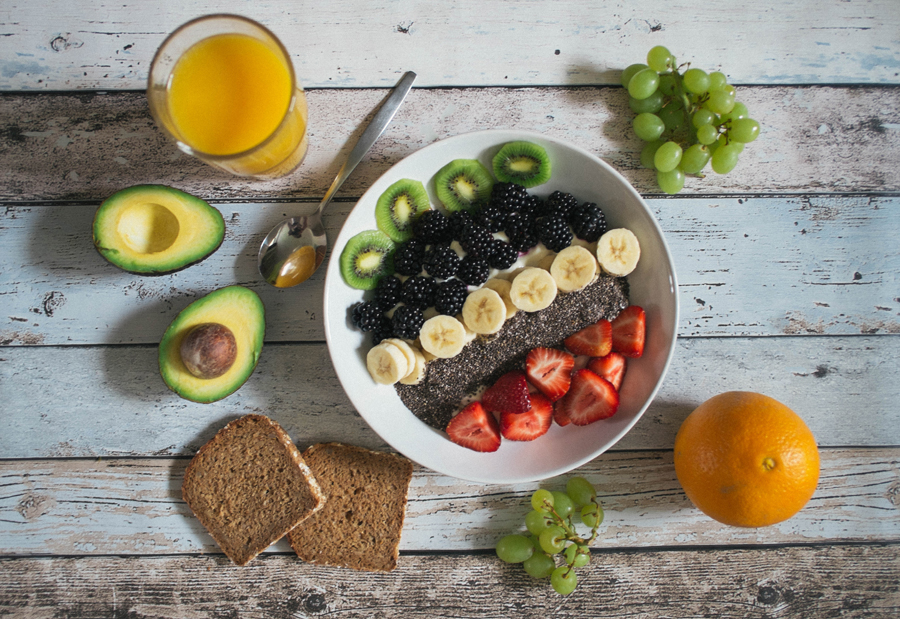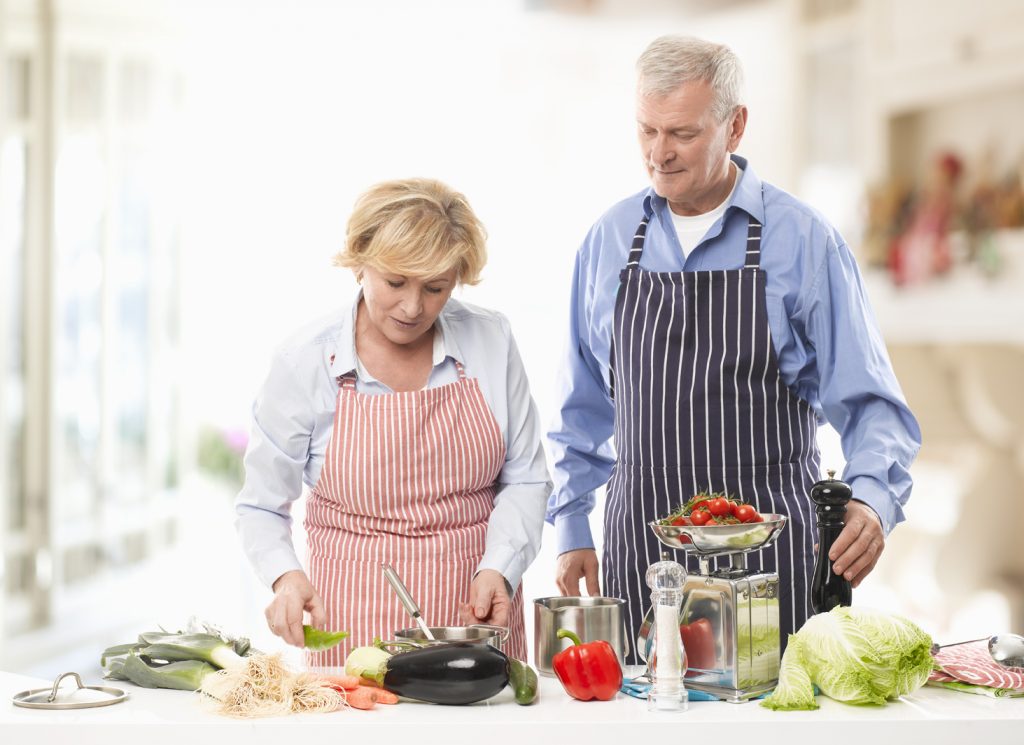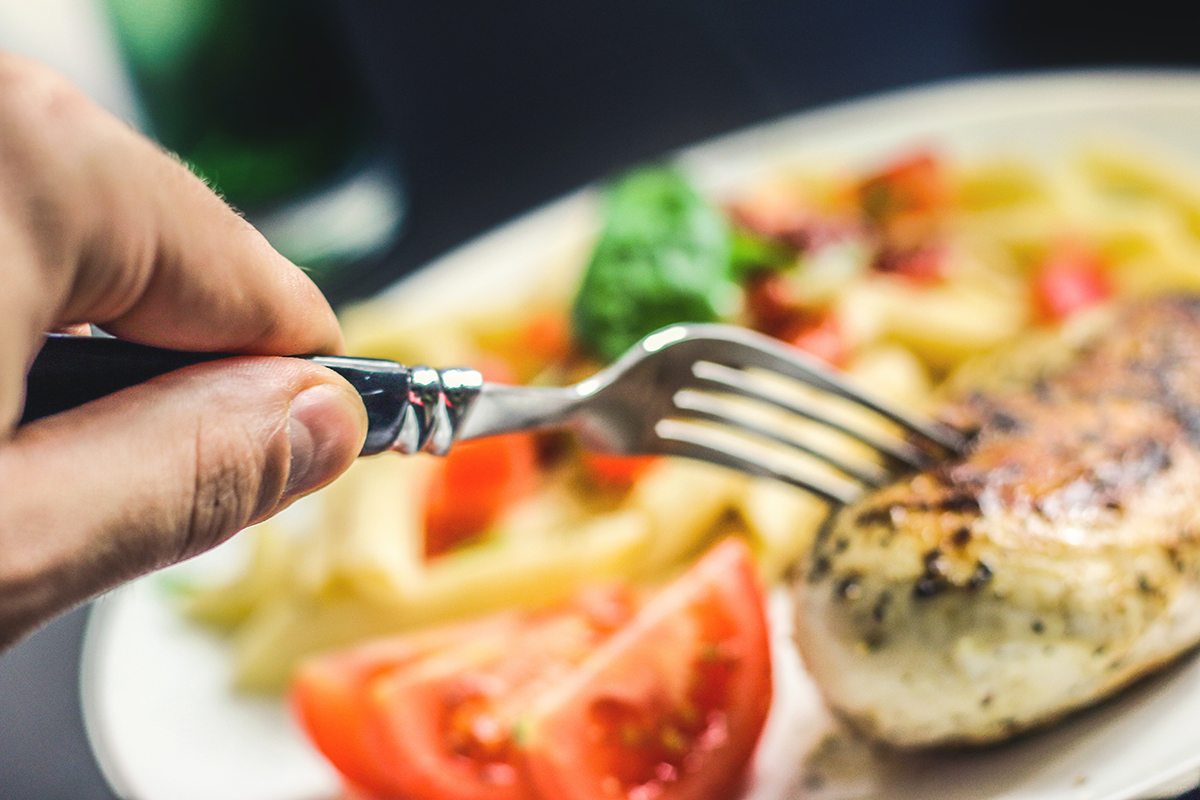Food Shaming: Can We Please Stop It?
Once upon a time, food used to be one of life’s pleasures and athletes would eat with gusto. Today, food has become a source of anxiety—Will it ruin my health? Make me fat? Hurt my performance? Food has also become a source of shame—I shouldn’t have eaten so much. I eat well during the day but I’m so bad at night. I’m afraid I’ll eat too much pie at Thanksgiving.
A survey of Gen Z-ers (ages 11-26; born between 1997 and 2012) indicates 60% feel pressure to eat in a way that shows others they eat “healthy.” These student athletes and recent grads —many of whom are fitness exercisers and athletes—feel pressure from social media, if not from their parents, peers, and teammates, to choose a perfect diet (i.e., no chips, cookies, burgers, etc.). And then the binge-eating and sneak-eating happens: shame, guilt, embarrassment.

At the 2023 Food & Nutrition Conference & Exposition (FNCE) of the Academy of Nutrition and Dietetics (the nation’s largest group of nutrition professionals), food shaming was a hot topic. (This topic that is near and dear to the hearts of most registered dietitians (RDs), given “everyone” seems to scrutinize what we eat. Ha!) Food shaming happens not just among athletes at team meals, but also at family dinners, school lunches, and office coffee breaks. Maybe you, too, have experienced shame-producing food situations where you felt like you did something wrong because you ate, let’s say, a sandwich (tsk, tsk) at a team meal, while your teammates ate lettuce leaves?
Athletes can easily end up feeling awkward, inadequate, and embarrassed about their food choices. As one runner shared, “After visiting xxx college for a weekend, I decided against going there because the women on the track team nibbled on only dry salads with grilled chicken for lunch and dinner. I felt very awkward as I refueled my tired muscles with a plateful of pasta with meat balls.”
Unfortunately, in today’s world, we live with a lot of morality around food. Morality can easily spoil one’s peaceful relationship with food. Athletes who have been food-shamed start to focus on eating only (society-defined) “good” foods and eliminate the “bad.” Consequences of being food shamed include feeling bad about themselves, a desire to eat alone, and increased self-criticism of perceived body flaws. (“No wonder I’m so fat. I should eat better…) The more shame athletes feel about their food choices, the more likely they are to restrict what they eat and cut out “white” foods, fast foods, and all fun foods. This can become a slippery slope into disordered eating, if not an outright eating disorder.
While many athletes might wish they could “just eat normally”, they often hold too much shame to seek guidance from the healthcare professional who could help them: a registered dietitian (RD) who is board-certified in sports dietetics (CSSD). If they feel guilty, anxious, and vulnerable regarding their food intake, they’ll fear being judged. “I would feel too embarrassed to honestly tell a dietitian about what I eat…” If that holds true for you, rest assured, a professional RD will not make hurtful or judge-y, guilt-inducing remarks. (Most RDs have been food shamed themselves for enjoying fun foods, tsk-tsk, like Thanksgiving pies and holiday cookies. They understand how uncomfortable it can feel.)
Food-shamed athletes prefer to eat alone, deprive themselves of their “unhealthy” foods—and end up shamefully over-eating them at a time of weakness. According to FNCE speaker Tammy Beasley RD, shame thrives in secret, lonely places of over-indulgence. The RD’s job is to transform that shame into self-compassion and self-kindness; to let athletes know they are not alone; they are not the only humans who have devoured a pint of ice cream in one sitting.
Solutions
To derail the cycle of food shaming, we need to abandon food morality. Food is fuel; it is not good or bad and what you eat does not determine if you are good or bad. Your goal is enjoy a balanced intake of a variety of nutrient-dense foods with some fun foods included. Please stop scrutinizing and “perfecting” your food intake. Instead, focus on fueling for optimal performance. Trust that eating bread and pasta will not result in your body exploding into obesity, but rather will fuel your muscles and enhance your athletic ability. A cookie or two will not ruin your health forever.
Social media is the number one instigator of food shaming. Given almost all of us use social media, and 57% use it more than 5 hours a week, we can see how food shaming can spiral out of control. Instagram photos with “healthy foods” can easily make anyone feel bad about choosing “imperfect” foods with less nutrient density. Hence, a good place to stop food shaming is at the source: limit the time you spend scrolling through endless triggering posts—and stop following triggering influencers.

Moving Forward
Three tips to help transform your “shameful” eating into pleasurable fueling include:
• Let go of being a perfectionist and enjoy being human, like the rest of us. Stop trying to eat a “perfect diet.” An excellent diet will do the job. The goal is 85-90% quality-calories and 10-15% “whatever”, such as an apple some days, and apple pie on other days.
• An excellent sports diet can include some “evil” sugar. No need to avoid all sweets and treats! The US Dietary Guidelines allow for 10% of total calories to come from added sugar. That’s 240 to 300 calories (60-75 grams) of added sugar per day for most athletes, if desired. That’s the amount of sugar in 3 gels, 36 ounces of sport drink, or 24 gummi bears. Sugar in any form helps (re)fuel muscles during and after a hard workout.
• Enjoy a satisfying breakfast and lunch. Stop eating when your body feels content, not just when the food is gone, you think you should, or you’re feeling ashamed because you are eating more than your peers. Adequate daytime meals can curb afternoon and evening (shame-inducing) binges.
• Finally, bring fun back into your food-style. Yes, please shamelessly enjoy fun foods like Thanksgiving pie and Grandma’s special holiday cookies, keeping balance and moderation in mind.
Nancy Clark MS RD CSSD counsels both fitness exercisers and competitive athletes in the Boston-area (Newton; 617-795-1875). Her best-selling Sports Nutrition Guidebook is a popular resource, as is her online workshop. Visit NancyClarkRD.com for info.

